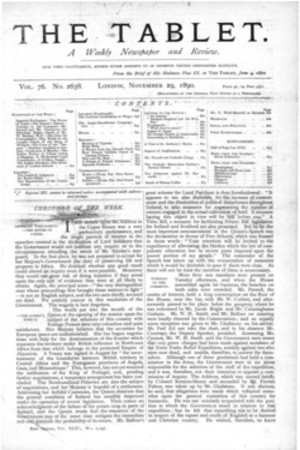08/11/2014
Recension d'une biographie en anglais
Nous vous proposons ici une recension du livre de Lady Mary Elizabeth HERBERT consacré au Père Alexis Clerc et publiée à Londres, en 1890, sous le titre suivant : A Martyr from the Quater Deck.
Cette recension est parue dans le journal anglais The Tablet, dans le numéro du 29 novembre 1890.
The Tablet
Page 14-15, 29th November 1890
A MARTYR FROM THE QUARTER DECK.[*]
LADY HERBERT'S busy pen has contributed to Father Coleridge's Quarterly Series a touching and edifying volume entitled as above. The Christian hero of this tragic narrative is Alexis Clerc, a converted agnostic of our own day, and the merit of this book is its special suitableness to these "dangerous times" in which we live. Its pages set forth, not the theory, but a brilliant example of conversion of heart from the agnosticism which is now making such havoc among this generation. The life of Alexis may be divided into three periods, (1) his wandering from God into unbelief, (2) his happy return to God and His holy laws, (3) his subsequent years as a layman and a priest, until, in 1871, he gloriously died a victim of expiation.
Alexis was formed by his mother to faith and purity. In his childhood he loved to read the lives of the saints, to whose imitation he aspired. But his good mother's influence was counteracted by the evil influence of his free-thinking father, who sent him at an early age to an infidel school in Paris. There the Catholic instincts imbibed from his mother were soon stifled by inhaling the poisonous atmosphere of a hotbed of infidelity. But though his mind was perverted by agnostic philosophy, yet he never fell so far down the abyss of evil as to fly from God with secret aversion and madness, which is the case with so many infidels of our day. Yet for many years Alexis "sat in darkness and in the shadow of death," leading a life of vanity illusion, and pride, measuring good and evil, not by the light of truth, but by the, cravings of passion. While thus alienated from God, a religious book fell into his hands which raised a suspicion in his unhappy soul that perhaps after all there was a deadly poison hidden in the cup of pleasure which he was drinking. The suspicion aroused the powers of his soul, which had not found in earthly enjoyment the rest and happiness that he had sought.
He thereupon betook himself to the serious study of Christianity, analysing its doctrines and examining its traditions, which resulted in his intellectual conviction of the truth of revelation. For a time his will held back from embracing Christianity, which he was content to regard as a grand abstraction. But little by little the light of grace streamed into his soul. He began to understand God's goodness, power, and majesty, and the madness of daring to violate His divine laws. His will was then moved to repentance and compunction of heart, and the miracle of his conversion was complete—a conversion which was specially remarkable for its thoroughness. For not satisfied with publicly glorying in his faith, in spite of the jeers and ridicule of his shipmates, he made it henceforth his chief study to reduce to practice the gospel teaching of our Lord, Whom he now acknowledged as his only Master. To this practice heattained in an eminent degree by prayer, penance, and the study of divine things, which he found time for in the midst of his life in the navy. His favourite study, even when a layman, was the Summa of St. Thomas, by which he trained his mind and conscience and raised himself to a high standard of Christian perfection. He thus became an instrument God's hands for the conversion of many of his comrades on the quarter-deck.
Having gone up the ladder of perfection step by step he at length renounced, not only the spirit of the world, but the world. itself by entering the Society (4 Jesus and becoming a priest, and his saintly life won for him from the King of Martyrs the privilege of a martyr's crown. We will not dwell on the exciting story of his martyrdom in the midst of the atrocities ot the Paris Commune. We will merely mention that during his cruel imprisonment at Mazas he was sustained in his solitude and sufferings, as the martyrs were of old, by the possession of the Blessed Sacrament and the Holy Scriptures. For by a pious stratagem the Blessed Sacrament was brought to him in prison, and he bore It on his breast as a living altar. So great was the transport of his inward joy at possessing our Lord with him that he said to a friend Who went to see him: "I am no longer solitary in my cell, for my Lord and my God has come to share it with me. It is not only in thought that I can draw near to Him, but in very deed and in truth. He is come corporally to console His poor prisoner. He wills to keep me company." His friends also at his entreaty brought him a copy of the Holy Scriptures, which gave him such comfort that he was heard to say that with the Bible he had enough to nourish his soul during all the time he should remain in prison, even were he to die of old age.
In concluding. this hasty notice we strongly recommend our readers to read the martyr's life, for we feel sure that they could find nothing that would better serve as a Christmas faggot to kindle in their souls the fire which burns so languidly in these latter days when faith is extinguished in many souls, and the charity of so many has grown cold.
Source:
http://archive.thetablet.co.uk/page/29th-november-1890/14
http://archive.thetablet.co.uk/page/29th-november-1890/15
15:50 Publié dans Actualités, Biographie | Lien permanent | Commentaires (0)





Les commentaires sont fermés.